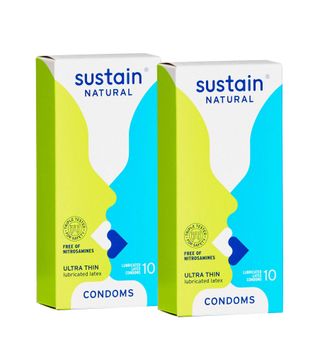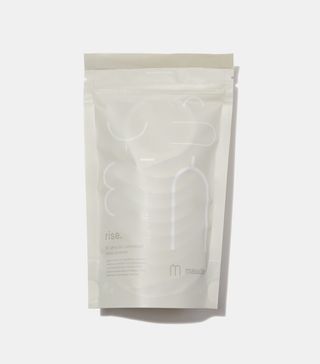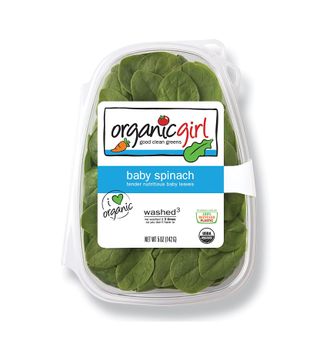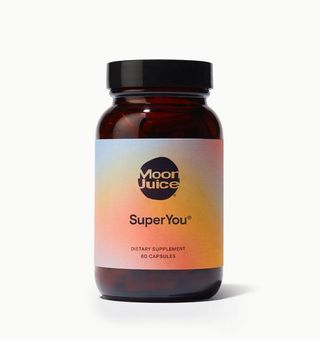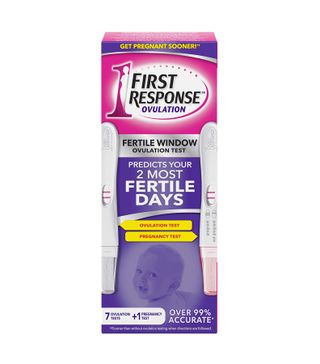Here's What You Need to Know About Fertility in Your 20s


A friend of mine recently summed things up to me pretty accurately: "The next 10 years of our lives are going to be insane," she told me wide-eyed over margaritas. This prediction was not the result of any specific life event but the sole fact that we're both in our late 20s. It's the time when many of us are advancing our careers, settling into relationships that are more meaningful than ever, and attending weddings at an alarming clip. In other words, we're growing up.
For some of us, that means that the idea of having kids doesn't seem quite so distant anymore. In fact, it might be part of those next 10 years. Even if pregnancy isn't exactly top-of-mind, it's never a bad idea to ensure that you're in tip-top shape for when the time comes.

First things first: It's in your best interest to visit your ob-gyn regularly to ensure that everything looks good. They'll also be able to tell you if you have any risk factors to keep in mind for fertility later on, like PCOS or scar tissue.
But for some more holistic pointers, we turned to ob-gyn Lakeisha Richardson, MD. Find her tips below for ensuring that your fertility is in tip-top shape, even if you're not thinking about kids just yet.
1. Know your fertility timeline

"In general, female fertility peaks at age 20 to 24 years old," says Richardson. That might seem young, especially in this day and age. The median age a woman gets pregnant with her first child in the U.S. is now 26, up from 21 in 1972. And in some cities, that number hovers around 30.
The good news? While your fertility will start to decline in your 30s, it doesn't take a sharp dip until after the age of 37, says Richardson. "At the age of 40, female fertility is at an all-time low," she adds.
2. Practice responsible sex now to make sure you're in the clear later

STIs aren't just a huge inconvenience (and in many cases, downright dangerous), but they can also contribute to infertility down the line. "STIs such as chlamydia or gonorrhea can cause a pelvic infection known as PID (pelvic inflammatory disease)," says Richardson. "PID causes scarring and damage to the fallopian tubes, which can lead to infertility."
That means that even if you're on birth control, unless you're in a monogamous relationship (and you and your partner have been both cleared for STIs), you should definitely be using condoms.
3. Maintain a generally healthy lifestyle

That sounds kind of obvious, but in addition to ensuring your wellness in the meantime, balancing your stress levels, prioritizing nutrition, and staying active can make all the difference when the time comes to start thinking about pregnancy.
"Weight management and exercise are the two most important things women in their 20s can do to help boost their fertility," says Richardson. "Obesity has a negative impact on fertility and can lead to irregular cycles and anovulation."
It's also never too soon to start thinking about kicking certain vices to the curb (or at least cutting back). "Stop smoking, decrease your alcohol intake, and reduce your levels of stress," says Richardson.
4. Know what to expect when you're ready to go off birth control
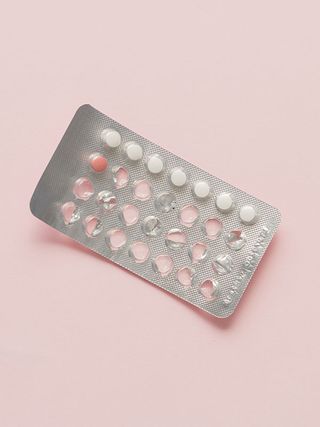
The type you use really matters when you're thinking about trying to conceive. "Someone who is on hormonal birth control should keep in mind the type of birth control they are taking and how long it will take for fertility to return after discontinuation of that birth control method," says Richardson.
If you have an IUD, you'll want to make an appointment to remove it. In general, while IUDs and other long-acting reversible contraception types (also known as LARC) offer immense peace of mind for those who are avoiding pregnancy, they can also (though not always) delay the return of fertility after their removal. That's why it's a good idea to plan ahead, says Richardson.
"When women are planning for pregnancy, they need to consider seeing their physician months in advance to plan for pregnancy and the appropriate time to discontinue birth control," she says. "Other forms of hormonal birth control such as the pills, patch or NuvaRing can be discontinued at the end of their cycle and fertility should spontaneously return within one to two months."
5. And when you decide that it's time…

There are a couple of other things to keep in mind. For one, the time of the month matters while trying to conceive. "It is vital to be familiar with your cycle and track your fertile window," says Richardson. "Using an at-home ovulation test such as First Response is helpful because it actually detects your two most fertile days."
As you start to get busy, know which accessories to avoid. "Most lubricants will harm sperm motility," she adds. "Spicing up intimacy during baby-making time is a great idea, but couples must be wary of the lubricant they use. It’s important to choose one that is fertility-friendly." She recommends Pre-Seed, which mimics your natural fertile fluids.
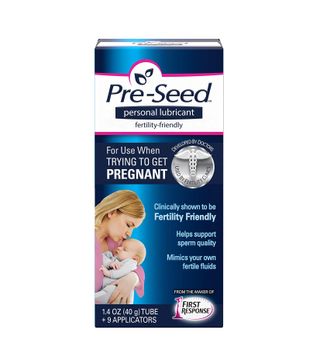
Next up: 13 Questions You Should Definitely Ask at Your Next OB-GYN Appointment
This article was originally published at an earlier date and has since been updated.
Disclaimer
This article is provided for informational purposes only and is not intended to be used in the place of advice of your physician or other medical professionals. You should always consult with your doctor or healthcare provider first with any health-related questions.
